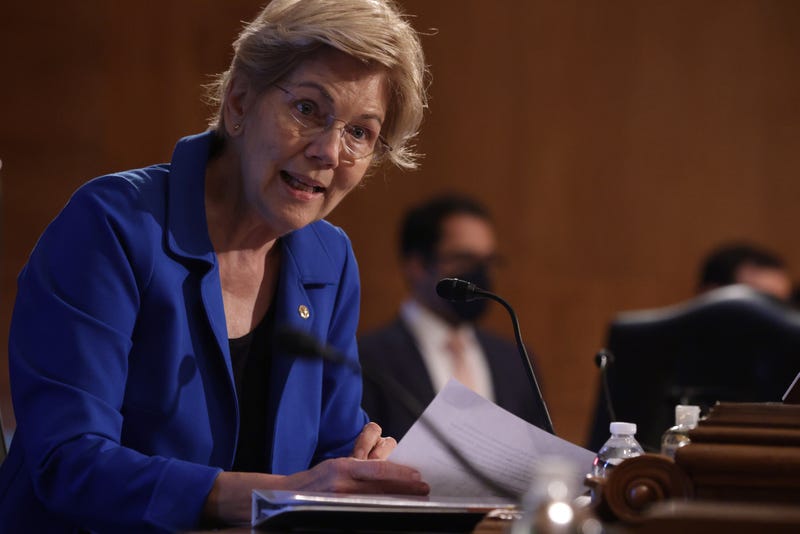
A minimum tax on the profits of the nation's wealthiest companies, regardless of what the companies say they owe the government, could soon be passed into law. The push for legislation comes from Massachusetts Senator Elizabeth Warren and her allies.
Listen to your favorite News/Talk station now on Audacy.
The proposal would come as part of the Democrats' $3.5 trillion economic and social-policy package.
Warren's so-called "real corporate profits tax" was the crucial part of her presidential campaign. Now, she has enlisted the help of independent Maine Senator Angus King to press that profitable companies should be taxed no matter what.
Warren's plan would stop companies that make above $100 million in annual profits, like Amazon and Microsoft, from being able to use loopholes and maneuvers that have allowed many to avoid federal corporate income taxes altogether.
Under the legislation, the most profitable companies would pay 7% tax on earnings they report to investors above $100 million. This would allow the government to tax businesses on the reports they attempt to maximize for investors instead of the earnings they diminish for tax reasons.
"During the presidential campaign, Joe Biden and I disagreed on some tax policies, but there was one thing we strongly agreed on: corporations shouldn't be able to tell shareholders they were making huge profits, then tell the I.R.S. they made nothing in profits," Warren said, The New York Times reported.
Democrats are expected to put together a budget blueprint that will set the terms of a sprawling multi-trillion-dollar package supposed to carry the rest of the ambitions to shore up the nation's social security safety net. They plan on paying for this by increasing taxes on wealthy individuals and corporations.
"Now is the time to put the revenues on the table to pay for our infrastructure plans — this is the moment," Warren said, the Times reported.
Two economists from the University of California, Berkeley, Gabriel Zucman and Emmanuel Saez, who advised Warren during her presidential run, estimated that the policy would impact almost 1,300 public corporations. This would generate close to $700 billion between 2023 and 2032, according to the Times.
"We understand that responsible legislation includes showing how it will be paid for and making those payments come from the billionaires and giant corporations who have evaded paying their fair share for so long," Warren said, the Times reported. "Getting the tax revenue part of the reconciliation package right is about making the playing field just a little more level for everyone."



